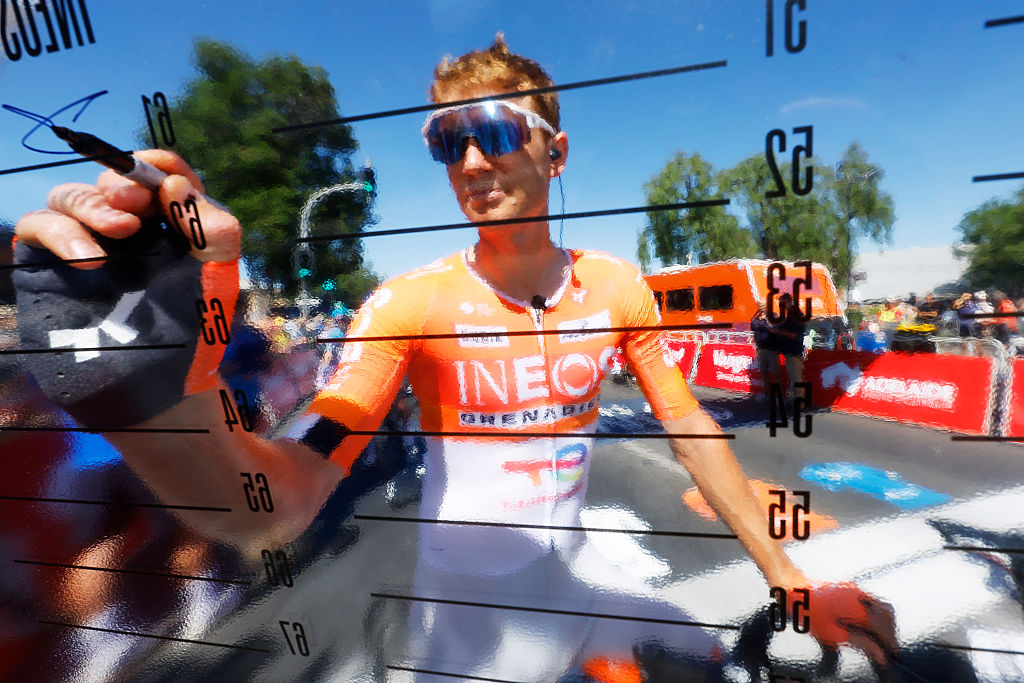Making Olympic history the Stuart O’Grady way
Veteran talks candidly on decision-making, honour and Box Hill
The latest race content, interviews, features, reviews and expert buying guides, direct to your inbox!
You are now subscribed
Your newsletter sign-up was successful
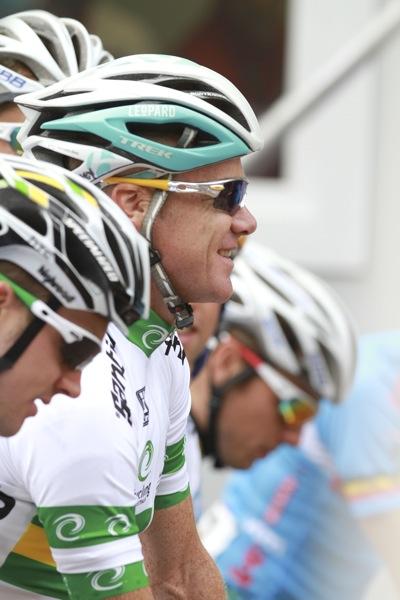
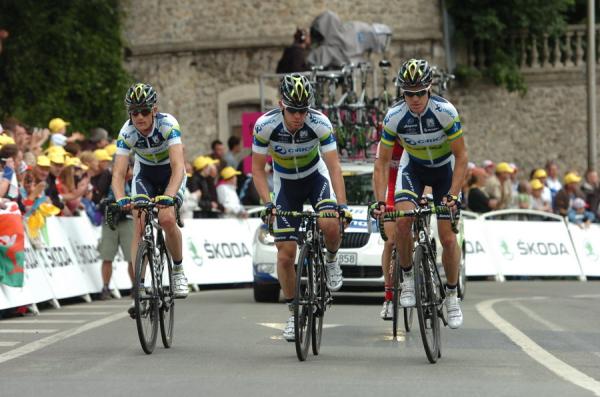
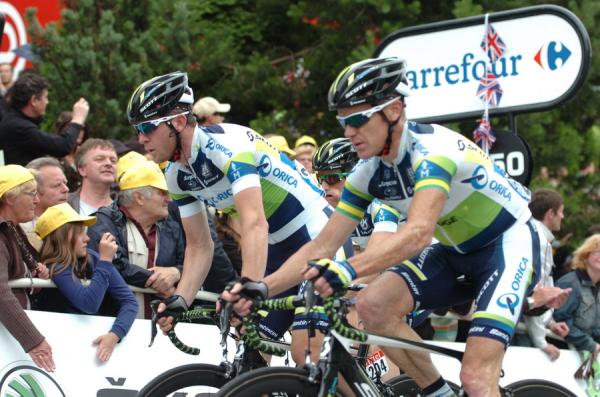
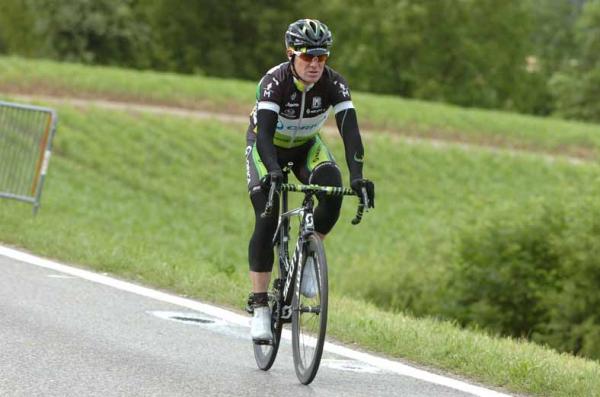
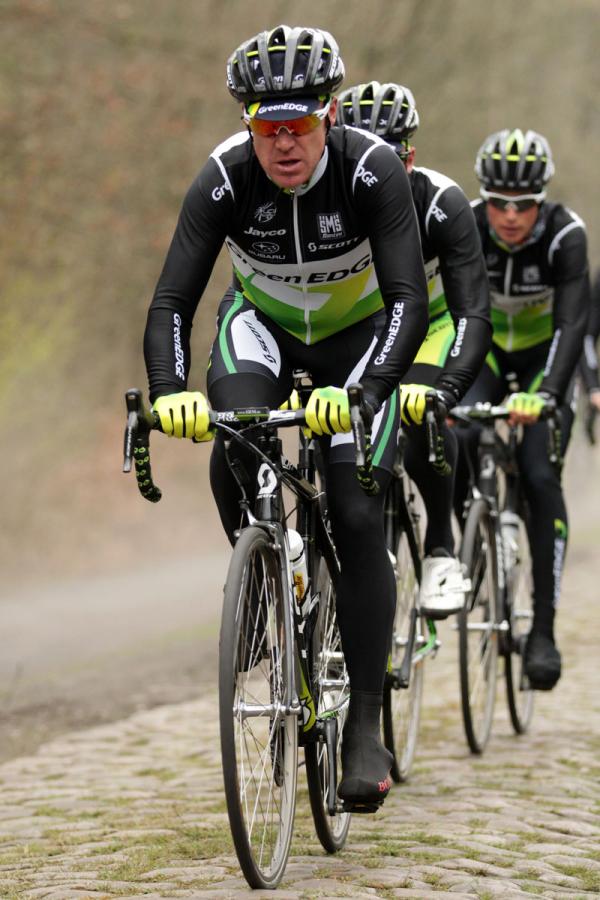
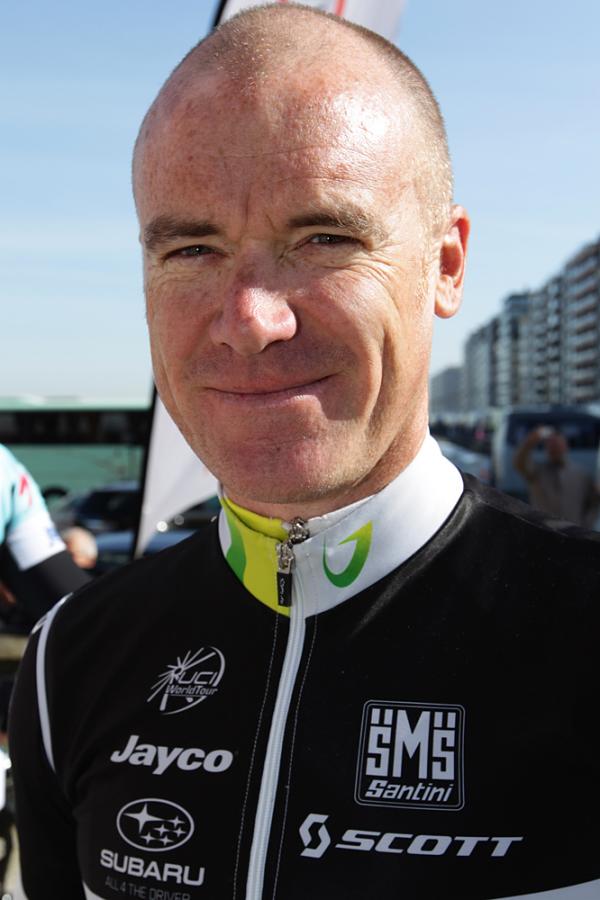
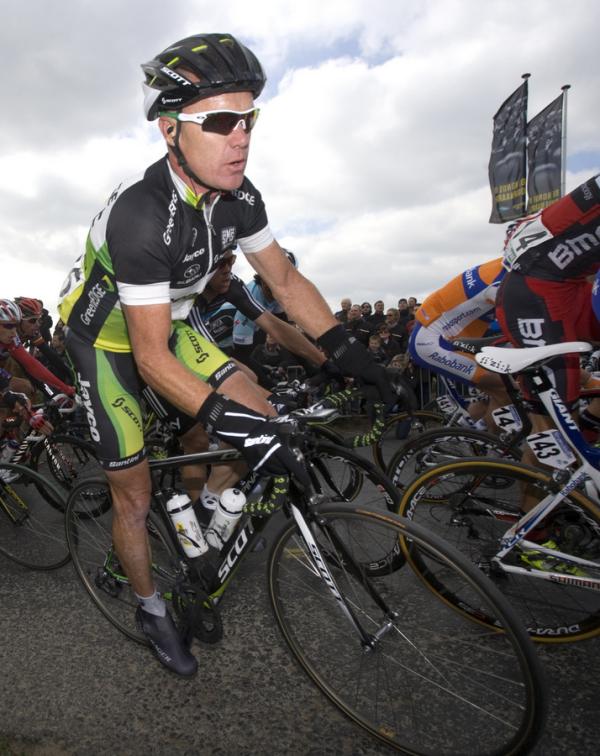
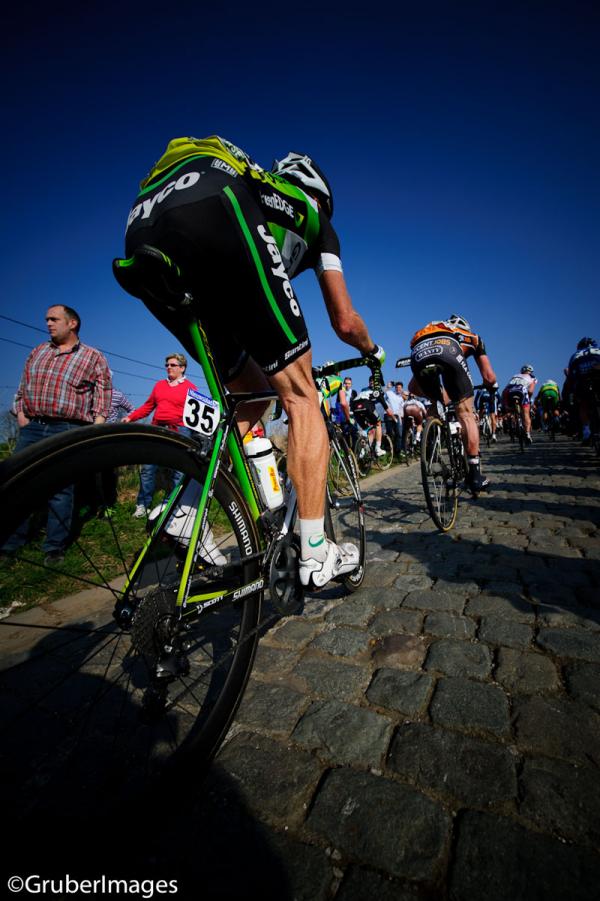
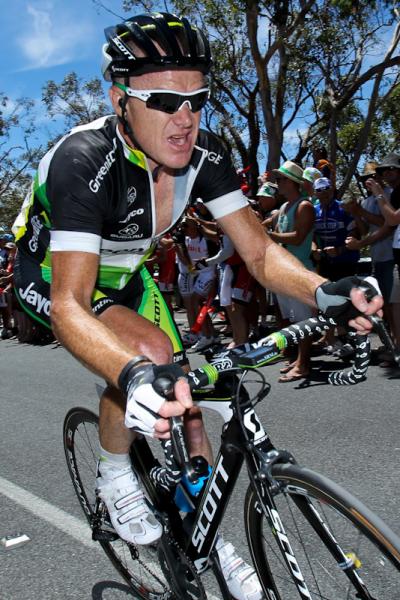
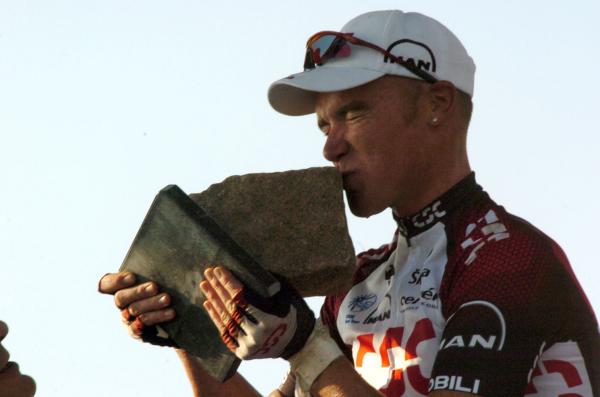
It takes a lot to unsettle Stuart O'Grady, but mention to him that only Frenchwoman Jeannie Longo has competed in more Olympic Games (7) in the sport of cycling and there's a delay in his response.
"Now that is scary," he told Cyclingnews.
On Saturday, O'Grady will line up as part of the Australian men's road cycling team to compete at the 2012 London Games, joining Cadel Evans, Simon Gerrans, Matt Goss and Michael Rogers. It will be the 38-year-old's sixth Olympics, having made his debut as part of the team pursuit squad on the track in Barcelona in 1992.
"That's a long time ago, Barcelona... time just flies," O'Grady suggested. "I still remember Barcelona like it was yesterday. I was just a red-headed punk kid cruising around the track.
"To be going to London and a sixth Olympics... what can I say? It's a lot of pain and suffering but the moments that make it so good keep you going year after year. It's been a massive adventure; highs and lows but the Olympics are so special. We take a lot of pride in wearing the Australian jersey and it doesn't get any better."
Professional Men's Road Coordinator Matt White said that the five-man line-up was one of the "most difficult team selections in Australia's cycling history," but however large a conundrum for the panel, O'Grady was one of the first picked.
Follow the leader
The latest race content, interviews, features, reviews and expert buying guides, direct to your inbox!
World Championship silver medallist Matt Goss found out first hand just how important O'Grady is to the national team in Copenhagen late last year. Goss hadn't enjoyed the lead up to the race he had hoped, having left the Vuelta with illness and missing valuable racing opportunities, and there were question marks over his readiness for the 266km challenge.
"At the world championships last year he [O'Grady] just pretty much rode in front of me the whole day," Goss told Cyclingnews. "I can switch off and not use any mental energy and just follow his wheel and know that if I need to be somewhere, I'll be there. He just takes a lot of the pressure off. His experience is the key to being relaxed in the race and making sure everything goes well."
It's a role that O'Grady has made his own since he made his debut for the senior national road team in 2000 at the Olympic Games, and continued it for his trade teams along the way. Road captain. Super domestique. It's not a tag that he ever envisaged for himself, but it's a role the he clearly relishes.
"It's been a natural progression with a lot of learning along the way," O'Grady says. "I didn't know what I wanted to do when I started cycling. I just wanted to go to the big races and try and win bike races and at the end of the day, that's what everyone wants to do. It's been an absolute rollercoaster of ups and downs along the way and I'm just really proud of the things that have been done and hopefully what we can do in the future."
One of the elements where O'Grady feels he excels for the national team, is his leadership in a race environment without radio communication back to the team car. When he began his career with Gan in 1995, it was the norm. Weighing heavily in radio communication's favour is the added safety, but when it comes to a rider's headspace, O'Grady believes the earpiece has resulted in a degree of hesitation.
"A lot of riders, and I'm not generalising, a lot of the younger guys don't know how to make a decision out on the road," he told Cyclingnews. "They've spent their whole career waiting to be instructed through the radio so it takes a big set of kahunas to make a big call for your teammates at a critical moment of the race. A lot of stuff goes on behind the scenes that a lot of people don't hear or see through the TV screen.
"I don't mind racing without radios because I know that it's ruled out a lot of the guys that I'm racing against."
Carrying the flag
Oft a contentious decision, the Australian Olympic Committee will name a flag bearer for the Opening Ceremony on the eve of the London Games. O'Grady, purely by virtue of his participation record will be one of the athletes vying for the tremendous honour. Also weighing heavily in his favour will be his gold medal from the madison in 2004, two bronze medals from 1996 in the points race and as part of the team pursuit, while in 1992 he won a silver medal in the team pursuit.
While it's not something that he's focused on, O'Grady admits that the possibility has crossed his mind.
"It's not really something that an athlete focuses on before the Olympics are coming around," he said, not wishing to pre-empt the duty. "You don't think I want to go to London to carry the flag for my country. You think I want to go to London to win a gold medal for my country or help my teammate. That would obviously be an absolutely incredible, prestigious honour. It's one thing going to an Olympics and representing your country but to be a flag bearer would be the ultimate."
There is however, one issue. The London Games Opening Ceremony, dubbed ‘The Isles of Wonder' is scheduled for July 27. The men's road race takes place the following day from 10am. Apart from the ever-increasing hoopla that features as part of the modern Olympics opening ceremony is the traditional Parade of Nations. Walking out into a packed stadium, surrounded by teammates and clad in national uniform, representing your country; it's a cherished memory for many Olympians. But for the men's road cyclists particularly, the prolonged activity is best treated with caution simply for the time spent on your feet.
O'Grady doesn't actually remember the last time he took part in an Olympic opening ceremony, he thinks it may have been Sydney, and he is yet to decide if he'll march in London.
Is it time to re-write the history books?
Australia hasn't won a medal in the men's road race since Clyde Sefton earned silver in 1972. Olympic road races are notoriously difficult to win, unpredictable in nature. Australia's five-man team for London is a solid one and possibly the nation's best chance to buck the trend of the last nine Olympiads.
Rogers got close in 2008, coming in fifth behind gold medallist Samuel Sanchez (Spain) where an injured Cadel Evans was considered Australia's best hope. O'Grady believes the Beijing experience was the team's first "serious crack" at a medal.
"Before then, we were maybe hoping for a top 10," he told Cyclingnews. "In ‘96 we would have been rapt with a top 20. It's just been a natural progression in Australian cycling.
"We really are going into London to win the gold medal and it's such a massive change in such a short amount of time."
Much of the early press for the 250km course trumpeted that it was tailor-made for Great Britain's Mark Cavendish but as date draws near, the tide is turning against the home favourite. Having ridden the test event late last year, which featured just two of the nine laps of the 15km Box Hill circuit, O'Grady for one doesn't believe it will be a day for the Manx Express.
"It's definitely not a sprinters course," he said adamantly. "If anyone thinks it's going to come down to a bunch sprint, they're on the wrong page."
If there's a word to describe the parcours, O'Grady succinctly selects "hard". The veteran is expecting a classics-style affair to play out on the small, windy roads with no where to hide and recover.
"With five man teams it's going to be extremely difficult to control," O'Grady suggests. "I can see a group of maybe maximum two or three guys coming into the finish so it's definitely a hard man's race."
Such a response from O'Grady begs the question: is it a race better-suited to Gerrans as opposed to Goss who was initially favoured from the Australian team, or even himself?
"I don't think you can really single anyone out," he admitted. "If you'd have asked me whether I thought Simon Gerrans would win Milan-San Remo at the start of the year I might have given you a funny look.
"We've just got to go there with every rider 100 per cent. Be aggressive when needed. Shut down attacks when needed. Without communication it's going to require a lot of quick, smart thinking on the bike. Those decisions out on the road are going to be critical."
Decisions that you can be assured, O'Grady will be at the helm of.
As a sports journalist and producer since 1997, Jane has covered Olympic and Commonwealth Games, rugby league, motorsport, cricket, surfing, triathlon, rugby union, and golf for print, radio, television and online. However her enduring passion has been cycling.
Jane is a former Australian Editor of Cyclingnews from 2011 to 2013 and continues to freelance within the cycling industry.
